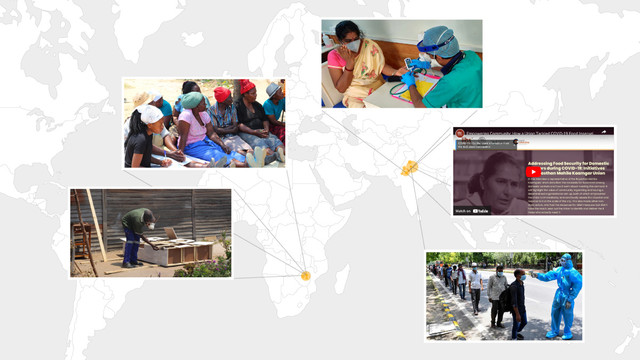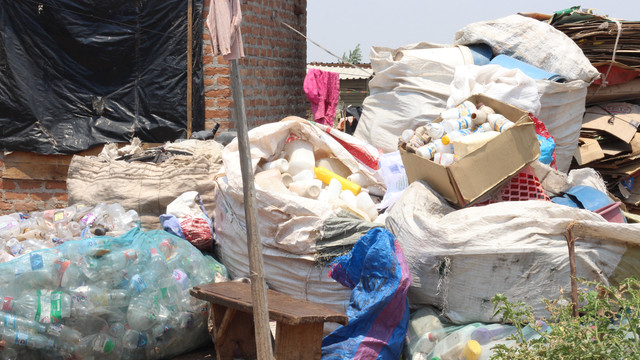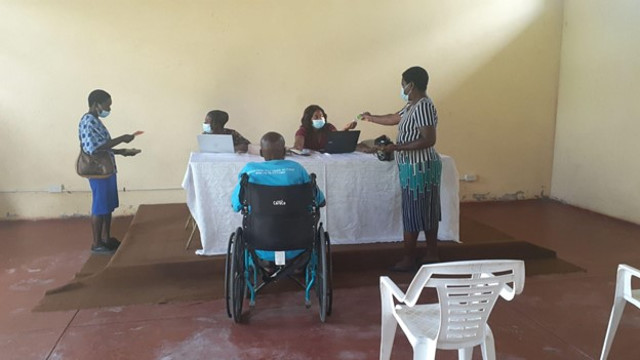New series: Beyond COVID-19: grassroots visions of change
IIED is launching a new series of online articles that will synthesise global responses to the coronavirus pandemic and aim to set a holistic, cross-sector agenda for the future.

In Tanzania, community organisations trained their members to deliver COVID-19 awareness messages and distribute handwashing materials in informal settlements (Photo: copyright Centre for Community Initiatives)
IIED’s new series ‘Beyond COVID-19: grassroots visions of change’ aims to offer a concise analysis of responses to the global pandemic and to promote forward-looking debates that can address multiple future risks. The series will draw on our partners’ experiences and insights, and provide a platform for grassroots voices from across the Global South.
The ‘Beyond COVID-19’ series will promote joined-up approaches to post-coronavirus development action. It will include articles that synthesise community experiences and responses across a range of topics, including: community action, tenure and informality, food security, climate change, vulnerable groups including refugees and displaced people, and gender.
The first analysis looks at community responses in urban areas.
As well as discussions synthesising lessons to learned, critiques and relevant contrasts from around the world, the series will feature short videos, blogs and podcasts from IIED’s grassroots partners.
IIED will co-create materials for multiple audiences, such as donors, researchers, and community organisations, including, for example, toolkits for response and recovery (building on IIED’s Urban Crises work), multimedia outputs, research findings, and relevant news reports.
The work aims to push the international agenda forward and encourage constructive debate that can help develop a transformative response to future risks.
A lack of nuanced solutions
Strategies to ‘build back better’ after the pandemic are already being debated. But these discussions rarely prioritise grassroots perspectives, or incorporate the need to develop resilience to a wider range of risks.
Many commentators note that ‘one size doesn’t fit all’ in COVID-19 responses, yet there is a lack of nuanced solutions that seek to advance community needs and priorities. Policy discussions remain sectoral and narrow in focus, reactive, or propose top-down strategies with limited grassroots inputs. When they do sketch a transformative response, they still lack details or a sufficiently cross-cutting approach.
Supporting joined-up thinking and grassroots voices
IIED aims to contribute:
- Cross-sectoral analysis that will prioritise holistic, joined-up approaches, rather than discussing issues in isolation
- Comparative discussions from across the Global South, drawing upon partners’ insights and other emerging findings
- Analyses of the politics of COVID-19 response, including the implications for vulnerable groups (e.g. migrant workers, women’s care burdens) and potential areas for co-produced solutions
- Opportunities to amplify community voices and priorities when developing a way forward.
IIED researcher Anna Walnycki welcomed the series, saying: “‘We’re pleased to offer a platform that can share lessons and insights from the Global South on COVID-19. We hope it can help to create multifaceted strategies that can better address this complex crisis.”



